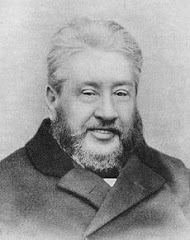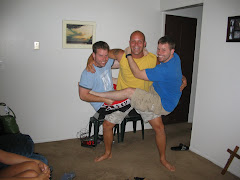August 28, 2005
By Way of Illustration
Romans 7:1-3 (ESV)
Or do you not know, brothers—for I am speaking to those who know the law—that the law is binding on a person only as long as he lives? [2] Thus a married woman is bound by law to her husband while he lives, but if her husband dies she is released from the law of marriage. [3] Accordingly, she will be called an adulteress if she lives with another man while her husband is alive. But if her husband dies, she is free from that law, and if she marries another man she is not an adulteress.
Paul uses the illustration of Biblical marriage to show the Christian’s new relationship to the Law of Moses. The above illustration does not suggest that we are either the wife or the husband, but simingly both. Lets look at it.
By Way of Illustration
Romans 7:1-3 (ESV)
Or do you not know, brothers—for I am speaking to those who know the law—that the law is binding on a person only as long as he lives? [2] Thus a married woman is bound by law to her husband while he lives, but if her husband dies she is released from the law of marriage. [3] Accordingly, she will be called an adulteress if she lives with another man while her husband is alive. But if her husband dies, she is free from that law, and if she marries another man she is not an adulteress.
Paul uses the illustration of Biblical marriage to show the Christian’s new relationship to the Law of Moses. The above illustration does not suggest that we are either the wife or the husband, but simingly both. Lets look at it.
WE ARE THE WIFE: In Romans 7:1-3, notice that the woman is free to remarry after her husband dies. We could say that we too, are free to remarry another once we are out from under the Law’s condemnation. When Jesus Christ takes the punishment, and we accept that on our behalf, we are free to marry into a new union of grace with Christ. But be careful. If we are married to works (Law) and we try to marry grace at the same time, the illustration says that we are adulterers. If anyone attempts to work to get to heaven and then say it is by grace we are saved, you become a spiritual adulterer in the eyes of God. You are mixing oil and water and polluting the finished work of Christ on your behalf. The Judaizers did the same thing. They said, “Oh, yes, we are Christian, and we are saved by grace but that must be accomplished by circumcision.” So, make sure you have died first to the Law of self-effort and achievement to gain heaven and Christ, in order to marry another, the Law of grace and life.
WE ARE THE HUSBAND: Lastly, note that the husband died. The Scripture also says that we have died like this husband. Colossians 3:13 says:
“For you have died, and your life is hidden with Christ in God.”
In this illustration, we also can be the husband. The only way the husband can marry another is if he dies and then is resurrected. Ephesians 2:5-6 says:
— by grace you have been saved— [6] and raised us up with him and seated us with him in the heavenly places in Christ Jesus,
We too have died and are raised up with Christ and have married another, Christ Jesus. Listen, at the very moment we believed and casted aside any hope of earning heaven by good deeds, we died, and in one instant we became widows and widowers. Immediately thereafter, we were married to Christ at conversion, and found to be in the arms of a new lover, legally, spiritually, and married FOREVER.





